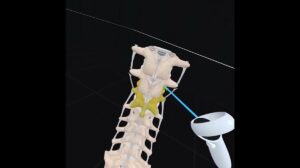July 14, 2009 (Portland, Ore.) – One in eight women develop breast cancer in their lifetimes. Although regular mammograms can reduce breast cancer deaths by more than 30 percent and the U.S. Preventive Services Task Force recommends screenings every 1-2 years for women over age 40, current screening rates fall short of these guidelines. Studies show that older women, ages 50-69, benefit most from the test because they are at higher risk for breast cancer and more likely to die from it.
A reminder program aimed at screening for breast cancer when it is most treatable boosted mammography rates by more than 17 percentage points, according to a new study by Kaiser Permanente’s Center for Health Research in the August issue of the American Journal of Preventive Medicine. The program used electronic health records to identify women who would soon be due for a mammogram and reached out to them via postcards, automated voice messages and personal phone calls. The study of 35,000 Kaiser Permanente members is the largest to test a reminder program involving this three-pronged approach. By the second year of the program in 2008, mammography rates jumped from 63 to more than 80 percent among women aged 50-69.
Funded by the National Cancer Institute, this study involved employees using Kaiser Permanente’s robust electronic health records database to identify women (ages 50-69) who hadn’t had a mammogram for 20 months. Starting in January 2006, these women were sent a postcard telling them that they soon would be due for another mammogram. If they didn’t make an appointment within a month, they received their first automated reminder call. A month later, they received a second automated call, and one month after that, if they still had not made an appointment, they received a call from a clerk in the radiology department. Within 10 months of their first reminder, more than 75 percent of these women had completed their mammograms—compared to only 63.4 percent before the program started. After the second year of the reminder program, 80.6 percent of women had completed their mammograms.
Adrianne Feldstein, MD, MS, investigator at Kaiser Permanente’s Center for Health Research and study lead author said, “We know mammograms are effective, but too many women put them off, even when they have health insurance. This study is the first to show that these reminder programs can be effective in such a large group of women. If we could improve the country’s mammography rate by the same amount, we could detect as many as 25,000 additional cases of breast cancer each year.”
References and Resources
Feldstein AC, Perrin N, Rosales AG. Effect of a Multimodal Reminder Program on Repeat Mammogram Screening. A Jour Prev Med. 2009;37:2 94-101.
For more information on this physician, please visit Adrianne Feldstein, MD, MS




